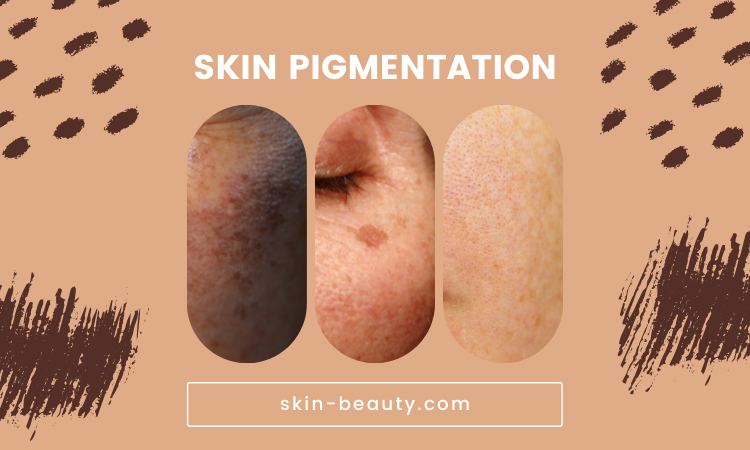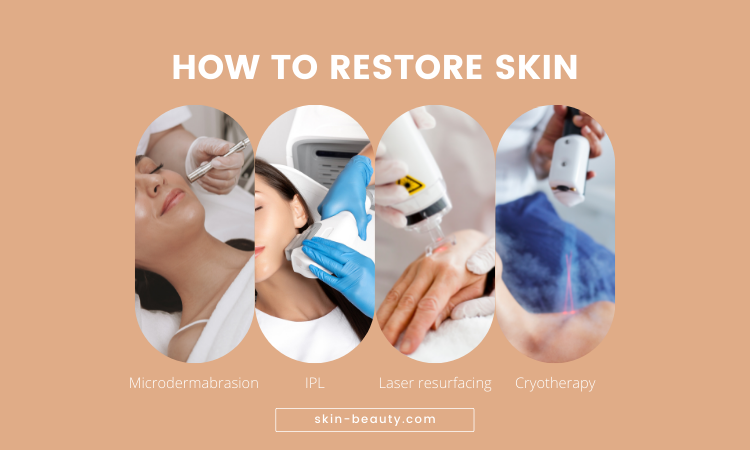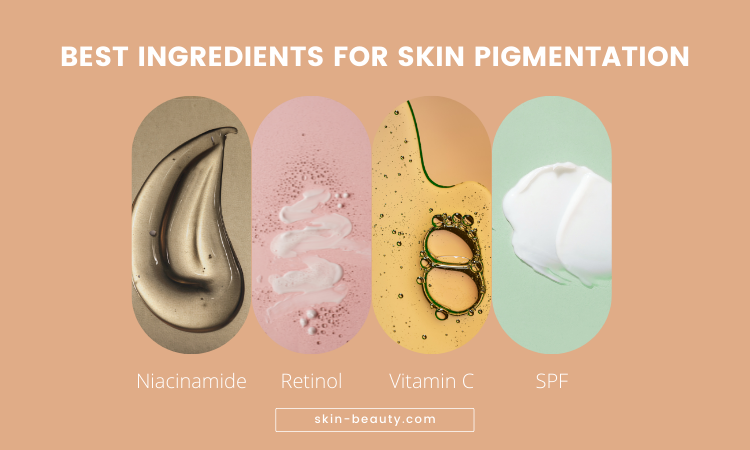How to restore skin pigmentation FAQs
What is skin pigmentation?
Hyperpigmentation is not necessarily a condition but the term used to describe skin that looks darker than your skin tone. It can be visible in small patches or cover large body areas and affect you entirely. Sometimes, people experience a change in the color of their skin. While it's not always harmful and can be caused by sunspots or melasma (a typeface-like appearance), you should know what causes them so that they don't progress untreated into something more serious such as post-inflammatory hyperpigmentation, which will make your unwanted dark patches darker.
- Melasma: a common skin condition that can develop during pregnancy. The color of your face may change due to hormonal changes, and these areas of hyperpigmentation typically appear on any body part other than the stomach or head.
- Sunspots: a common side effect of excess sun exposure. They generally show up on areas exposed to the UV rays, such as your hands and face.
- Post-inflammatory hyperpigmentation: can be caused by acne, injury, or skin inflammation.

How to restore skin affected by pigmentation
Hyperpigmentation can be caused by several factors, including medical conditions and medications. In some cases, home remedies don't work, so you may need to take more severe measures like seeing your doctor or going off a drug altogether that may be causing pigment spots on the skin. Several treatments are available depending upon what's causing problems—addressing any underlying illness that could be contributing—for example, using some chemical peels may also be an issue. Try these solutions with a dermatologist or esthetician:
- Microdermabrasion: the treatment uses a minimally abrasive instrument to gently sand your skin, removing the thicker, uneven outer layer
- Intense pulsed light (IPL): a photo-facial is a way to improve the color and texture of your skin without surgery
- Laser resurfacing: a proven method to help reduce wrinkles, age spots, acne scars, and other blemishes as well as tighten skin
- Cryotherapy: facials that are the stimulation of collagen production, the reduction of fine facial lines and pores, decreased redness and inflammation

What are the best products to use for hyperpigmented skin?
- Murad Environmental Shield Rapid Dark Spot Correcting Serum is an intensive brightening serum that rapidly reduces dark spots without a doctor's visit while promoting surface cell turnover for brighter, more even skin.
- Wilma Schumann Dark Spot Correctiv Serum is a daily brightening skin treatment that helps fade the appearance of existing hyperpigmentation, dark spots, age spots, and freckles with continued everyday use.
- PFB Vanish Lumen8 Skin Brightening and Dark Spot Correcting Cream is a skin correcting treatment that reduces the appearance of hyperpigmentation caused by sun damage, pregnancy mask, mild melasma, and natural aging without affecting customarily pigmented skin.
- Exuviance OptiLight All Over Dark Spot Minimizer SPF 25 is a comprehensive, all-over facial treatment that helps prevent new signs of photoaging and dark spots.
- Dermalogica Powerbright Dark Spot Solutions Kit is travel-sized for a brightened and renewed you. The kit will help you get brighter, more luminous skin. It's not just for uneven skin tone - this is the perfect solution if your face has other pigmentation issues.

Best ingredients to look for when treating skin pigmentation
1. Niacinamide (Vitamin B3)
Niacinamide is a wonder vitamin that helps to reduce the production of melanin in your skin cells. In addition, concentrations of 2-5 percent of niacinamide can help lighten hyperpigmentation. Hydroxyproline is a natural moisturizer and anti-aging ingredient found in most skincare products. Those with sensitive skin should start by using lower doses. Still, it's beneficial to their health because of the production of NAD, which helps fight free radicals and repairs damage done to your healthy cells from external sources such as UV rays or pollution particles. Gentle enough for twice-daily use, we suggest this ingredient from a water-based serum penetrate deeper into pores and absorb more easily.
2.Retinol (Vitamin A)
Retinoids are a class of vitamins that have been used for centuries to treat skin conditions, such as acne and dark spots on the face. However, they're best known in recent years because they help reduce fine lines and wrinkles while also helping your complexion stay even-looking year-round. In addition, retinoids help promote cellular turnover at an expedited rate, allowing healthier cells to replace old, dead skin cells and yield smoother, brighter, younger-looking skin due to the rapid exfoliation and stimulation of collagen and elastin fibers. Tretinoin is a solid but gentle treatment that has been used for over 50 years to help treat mild or moderate acne and dark spots from sun damage.
3.Vitamin C (Ascorbic Acid)
The power of ascorbic acid is no joke. It can help prevent free radical damage and promote collagen production, which reduces the appearance of uneven skin tone or hyperpigmentation. In addition, it effectively treats hyperpigmentation because of its ability to inhibit melanin formation, thereby fading dark marks. The topical application of vitamin C helps prevent hyperpigmentation by protecting the skin against free radicals produced during UV exposure.
4.SPF (Sunscreen)
The antioxidant ascorbic acid found in SPF is solely responsible for protecting the skin from free radical damage and promoting collagen production, which reduces uneven skin tone and hyperpigmentation.
Recent Posts
-
Discover the Perfect Glasses & Styles to Enhance Your Rectangle Face Shape!
Your face shape plays a significant role in determining the most flattering hairstyles and makeup te …Apr 17th 2024 -
Moroccanoil Treatment for Hair: The Ultimate Guide
Moroccanoil Treatment for Hair: The Ultimate Guide In the world of hair care, few products have …Apr 1st 2024 -
You deserve to shine bright like a diamond! Unveil the ideal beauty trends for a diamond face shape
Discover the Perfect Hairstyles and Makeup for a Diamond Face Shape Your face shape plays a …Mar 29th 2024




